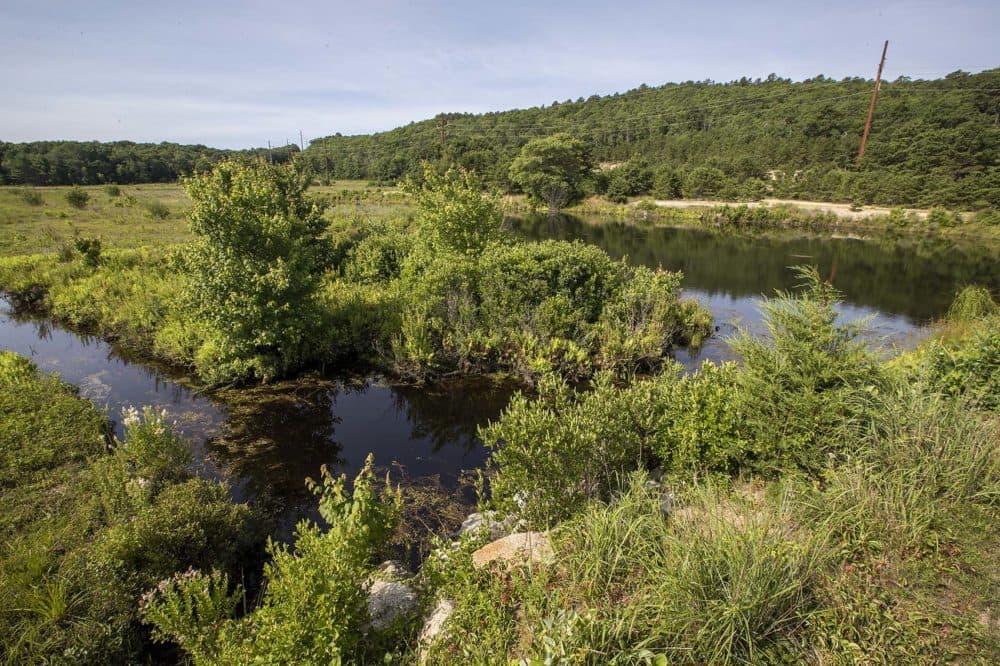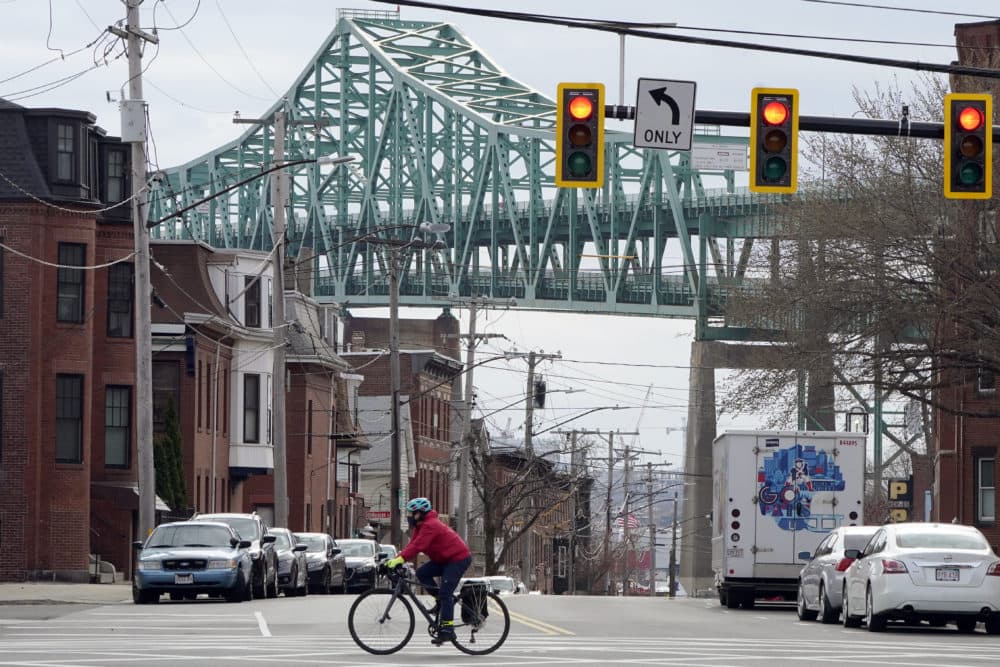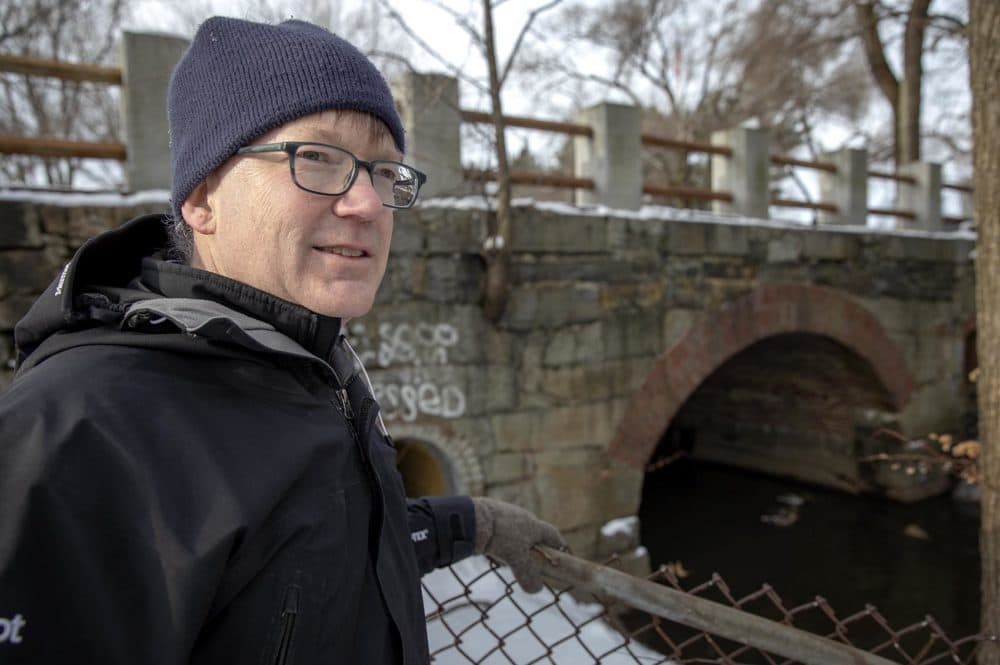Advertisement
‘Never in our wildest dreams’: Mass. environmental projects stall amid federal funding confusion

A wetland restoration project in Harwich was supposed to begin this month; now it’s on hold. Also stalled: the rehab of a community garden in Chelsea, and a report for the Environmental Protection Agency about the effects of exposure to multiple environmental toxins on Chelsea residents.
These projects are just some of the many casualties of the on-again-off-again freeze on federal funding stemming from President Trump’s executive actions.
One order, titled “Unleashing American Energy,” called for an immediate pause on hundreds of billions of dollars promised to groups planning a broad swath of environmental and infrastructure projects. In Massachusetts, the leaders of nonprofits that received this funding are reeling from the chaos.
Some have paused projects, unable to access millions of dollars they were granted — an apparent violation of multiple judges’ orders that the funding be restored. Others have put projects on hold out of concern they won’t be reimbursed for expenses, or that the administration will find a way to claw back the funds. Still others have decided to move forward, albeit cautiously and with their fingers crossed.
“I’m holding the bag on $17.5 million in NOAA grants I’m unable to get paid for,” said Andrew Gottlieb, executive director of the Association to Preserve Cape Cod, referring to the National Oceanic and Atmospheric Administration. “ Our access to the funding system was shut down.”

Gottlieb’s group won grants in 2024 and early 2025 for wetland and habitat restoration projects along Cape Cod. Worried that the Trump administration might pause the federal grant process, the group made sure to get its contracts signed before inauguration day.
“ Never in our wildest dreams” did he and his staff think the U.S. government would fail to honor the contracts, Gottlieb said. “And we are one small version of this story that's being repeated thousands of times and in thousands of places across the country."
The Biden administration’s Inflation Reduction Act and Bipartisan Infrastructure Law poured funding into projects across the country, including millions of dollars for Massachusetts nonprofits that proposed climate, energy and environmental projects.
Many of the organizations are small and grassroots, and they’re relying on the funds they’ve been promised, said Brad Campbell, president of the Conservation Law Foundation.
Advertisement
"The groups most affected are typically community-facing groups and front-line organizations that have limited budgets to start with,” he said. Many are focused on helping low-income communities and residents of color, and “they have built programs in expectation of this federal funding.”
Campbell said his organization, which often represents community groups in court, has fielded calls from nervous nonprofit leaders around the country in recent days.
Despite two federal judges ordering that the funds start flowing again, Campbell said he’s aware of several agencies that haven’t been complying or that are issuing conflicting directives.
"Groups are getting mixed signals from the agencies,” he said. “Or no signals at all.”
NOAA, which administers the grant Gotlieb is banking on for his wetland restoration projects, is one of those, Campbell said. In an email, a NOAA spokesperson said there was “a lag” in funding when the executive order was issued, “but we are now processing grants as normal.”
Yet, as of Thursday evening, Gottlieb said the funding remained inaccessible.
U.S. Sen. Ed Markey, a Massachusetts Democrat, on Thursday called the situation an “illegal, unconstitutional freeze.”
Speaking to reporters, Markey also said his request for more information was rebuffed by the DOGE, the entity Trump tasked with cutting government spending and entrusted to Elon Musk.

Nonprofit leaders said they are frustrated that months of planning and writing grant applications have come to this.
In Chelsea, the nonprofit GreenRoots paused plans to rehab a community garden that serves 40 families. The group feared it might not be reimbursed for the work, which was part of a nearly $60,000 award from the U.S. Department of Agriculture.
“When I look back at how long it took us to apply for and to be awarded and to get a contract from the federal government, only for the federal government now to say, ‘We may not fund you,’ it's really just like being raked through the coals,” said Roseann Bongiovanni, executive director of GreenRoots.
Bongiovanni said the pause adds stress for Chelsea residents, many of whom already struggle with food insecurity and now worry about the future of federal food programs like SNAP and WIC.
“Our community gardens provide a very important connection to fresh local foods for people who are already struggling to make ends meet,” she said.
She called the situation “ludicrous.”
Campbell, of CLF, called it “a gotcha game” that the Trump administration might win.
"The administration may ultimately get its way. It may ultimately accomplish the pause it intended — or actually, an even more effective killing of these programs — simply by making clear that none of these organizations should or could trust their word,” he said. “It's really a fundamental betrayal of what people expect of government.”
The full scope of paused projects is difficult to gauge. While some nonprofit leaders spoke about the funds they’ve been promised, many expressed fear that criticizing the administration publicly would put targets on their backs.
The Massachusetts Attorney General’s office joined colleagues in more than 20 states to file a lawsuit over the federal funding freeze. A spokesperson did not respond to multiple requests for comment for this story.

Despite the uncertainty and confusion surrounding their grants, some Massachusetts nonprofits have elected to keep projects moving forward.
The Charles River Watershed Association, for instance, will continue its federally-funded climate work. “It’s too critical to stop," said Climate Resilience Director Julie Wood.
The Mystic River Watershed Association is going ahead with plans to study strategies for cooling urban neighborhoods. The group is working with partners in Everett, Malden and Chelsea, despite having a $500,000 EPA grant suspended.
"There may be a moment where we do have to put this on pause,” said Patrick Herron, the group’s executive director, but for now “our organization has resilience and will continue doing this work.”
The Center for Coastal Studies said it will continue a NOAA-funded effort to monitor critically endangered North Atlantic right whales and help disentangle those caught in fishing gear. The New England Aquarium, which receives about $12 million in federal funding for various initiatives, also said it plans to continue research on right whales, along with sharks, sea turtles and other marine species.
“We're not going to slow down,” aquarium CEO Vikki Spruill said. “But if these funds are held back or cut — there's even talk of potential claw-back of money that's already been spent — those things would have a real impact on us.”
Native Plant Trust CEO Tim Johnson, whose organization received a grant from the U.S. Fish and Wildlife Service, part of which is now on hold, lamented the climate of uncertainty.
“It distracts us from actually completing our mission,” he said. “We're not used to the federal government being an unreliable and an untrustworthy partner.”
Editor's note: This post has been updated to clarify the status of a grant to the Native Plant Trust.
This article was originally published on February 06, 2025.

